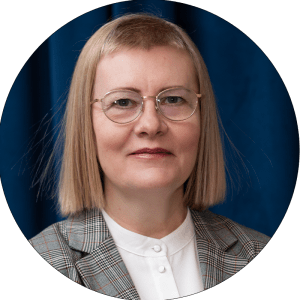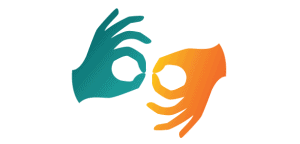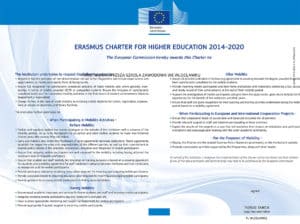Informacje ogólne
Państwowa Akademia Nauk Stosowanych we Włocławku uczestniczy w programie Erasmus od 2005 r. Obecnie uczelnia posiada już trzecią kartę programu Erasmus przyznaną przez Komisję Europejską w Brukseli.
Program Erasmus+ Szkolnictwo Wyższe skierowany jest do uczelni wyższych i może obejmować następujące działania:
- Mobilność studentów i pracowników uczelni (kraje programu)
- Mobilność studentów i pracowników uczelni (kraje partnerskie)
Wspólne studia magisterskie Erasmus Mundus
Wspólne studia magisterskie Erasmus Mundus to studia drugiego stopnia o międzynarodowym charakterze, prowadzone przez konsorcjum uczelni, w skład którego muszą wchodzić co najmniej trzy uczelnie z trzech różnych krajów uczestniczących w programie Erasmus+ (tj. z krajów programu). W uzasadnionych przypadkach w projekcie mogą dodatkowo brać udział instytucje z krajów partnerskich z innych regionów świata.
Pożyczki dla studentów odbywających studia magisterskie za granicą
System pożyczek programu Erasmus+ umożliwia studentom zdobycie środków na podjęcie i ukończenie studiów drugiego stopnia (magisterskich) za granicą. Banki i agencje będą udzielać studentom pożyczek na korzystniejszych warunkach: oprocentowanie będzie niższe niż na rynku, a rozpoczęcie spłaty nastąpi w okresie do dwóch lat od chwili ukończenia studiów, tak aby absolwenci mogli zacząć spłacać kredyt, kiedy już będą pracować.
Partnerstwa strategiczne
„Partnerstwa strategiczne” w sektorze szkolnictwa wyższego to międzynarodowe projekty polegające na wdrażaniu i upowszechnianiu innowacyjnych rozwiązań i dobrych praktyk w szkolnictwie wyższym. Efektem tego typu projektów powinna być przede wszystkim modernizacja oferty dydaktycznej uczelni, jej lepsze dostosowanie do potrzeb społeczeństwa i gospodarki oraz podniesienie jakości kształcenia.
Sojusze na rzecz wiedzy
Sojusze na rzecz wiedzy to międzynarodowe projekty współpracy szkół wyższych i przedsiębiorstw, których celem jest wspieranie innowacyjności w sferze edukacji i biznesu oraz szerszym otoczeniu społeczno-ekonomicznym, rozwijanie w społeczeństwie umiejętności związanych z przedsiębiorczością, stymulowanie i ułatwianie przepływu wiedzy między uczelniami i przedsiębiorstwami.
Budowanie potencjału w sektorze szkolnictwa wyższego
Międzynarodowe projekty zmierzające do budowania potencjału w szkolnictwie wyższym w krajach partnerskich są realizowane przez grupę współpracujących ze sobą instytucji (przede wszystkim uczelni) z krajów programu i uprawnionych krajów partnerskich. Projekty tego typu ukierunkowane są na pomoc i wspieranie instytucji szkolnictwa wyższego oraz systemów szkolnictwa wyższego w krajach partnerskich.
ERASMUS CHARTER FOR HIGHER EDUCATION 2021-2027
-
1. What would you like to achieve by participating in the Erasmus Programme? How does your participation in the Erasmus Programme fit into your institutional internationalisation and modernisation strategy?
Państwowa Uczelnia Zawodowa in Włocławek (State University of Applied Sciences in Włocławek, abbrev. PUZ) has been actively participating in the Erasmus programme for 14 years. Although it is a small institution with about 1,200 students, the Erasmus programme has been developing here year by year with increasing strength. Over the past 14 years, a total of 1037 mobilities has been realized, including 514 outgoing mobilities and 523 incoming mobilities. The University cooperates with 64 foreign partners located in almost all European countries. Its main goal is to continue participation in the Erasmus programme, develop cooperation with existing partners and conclude agreements with new universities from Europe and the world. The University intends to expand its activity with exchanges under KA107 and thus, from year to year, contribute to growing mobility under this action and active increase in mobility under KA103. It plans to achieve these goals as part of even closer cooperation with the international academic community and making full use of the best practices that have been applied in the respective universities. So far, the University has tried to implement these practices on its own and is going to consolidate them in the future, so that these practice opportunities will become a permanent result of Erasmus projects. In addition to the strong continuation of the realization of these practices, the next goal is to open to the implementation of new ideas in order to further modernize the University and to ensure even more efficient, easier and more economical service of the programme and all its beneficiaries. However, these solutions will also serve the entire academic community. Therefore, the University aims to introduce further digitization through programmes such as Erasmus Without Papers, to expand the development of e-learning platforms, library digitization, and to create new tools and applications for digital service of students and university staff. Another goal is to promote these initiatives within the academic community and to invite civil society to take part in them – i.e. external promotion. The modernization process of the University induced by increasing digitization will ultimately allow the achievement of other goals: reducing management costs and changes in the very way the University is managed – less bureaucracy, easier access to the system of services offered, as well as positive impact on the natural environment by eliminating paper documents and lower energy consumption related to copying or scanning. Further digitalisation and applications introduced to support programme beneficiaries will allow even greater coherence of activities and documents in the European education area, and also save work time in order to use it to initiate new tools that may in the future serve the European education area in the new programme perspective. Thus, one of the aims of the University will be to constantly promote the results of the Erasmus programme not only in the area of increased mobility, but also in the sphere of academic modernization through the use of good practices, development of digialtisation, impact of the programme on the natural environment and the inclusion of civil society in the Erasmus programme initiatives. The University will pursue these goals bearing in mind the necessity to act in full compliance with the fundamental principles of the Erasmus Programme Charter.
2. Please reflect on the Erasmus actions you would like to take part in and explain how they will be implemented in practice at your institution. Please explain how your institution’s participation in these actions will contribute to achieving the objectives of your institutional strategy.
Within the framework of the 2021-2027 programme, Państwowa Uczelnia Zawodowa we Włocławku (State University of Applied Sciences in Włocławek, abbrev. PUZ) plans to take part in the learning mobility. So far, the University has implemented KA103 projects in all outbound categories, i.e. students mobilities to study and take part in internships, as well as employees’ mobilities to teach and use training opportunities. The same applies to inbound mobility. In the perspective of 2021-2027, the University intends to develop its current activities and to implement them through:
– Increasing the number of mobilities in both directions and in all categories, i.e. inbound and outbound mobilities of students to study and take part in internships as well as inbound and outbound mobilitiess of employees to train and to teach classes as part of the KA103 action (it is estimated that in the new seven-year perspective, about 1500 new beneficiaries are going to use this mobility).
– Commencing exchanges in all categories available under KA107, first with one country from a selected area, and in the longer perspective even with 2-3 countries within one area, or a country/countries from
several areas. Due to the fact that the University has no experience in this field, it is difficult to predict implementation in numbers, but any increase from year to year will be satisfactory in this situation.
– Strengthening cooperation with existing partners (extension of existing contracts) and acquisition of new foreign partners under KA103 and KA107 actions – 20 new partners.
– Increasing the employers’ base to implement internships and the base of external training companies to implement training.
– Strong promotion of the programme through direct emails to students with information about it, campaigns on websites (news, banners) and promotion in social media, organizing Erasmus days, individual meetings of potential programme beneficiaries with the coordinator, contact with returnees from trips abroad, as well as student announcements, University newsletter, interviews in local press, radio and television with former programme participants.
– Assisting all outgoing and incoming beneficiaries of the programme at every stage of mobility, i.e. before, during and after mobility in all activities necessary to implement the mobility, such as documents, visas, accommodation, insurance, monitoring the recognition of learning outcomes and many other detailed activities related to mobility realization.
All academic activities aimed at the growth and development of the learning mobility are included in the University internationalization strategy, which is a part of the University strategy and takes into account the widest range of activities related to international cooperation in all possible areas and fields, including mobility, but also joint research, publications, publishing houses activity, joint organization of international conferences and symposia, working on study programmes and the transfer of best practices, as well as study visits and similar activities. The participation of PUZ in the Erasmus programme, that through mobility activities also allows for the exchange of experiences in other areas of international cooperation, perfectly fits into its internationalization and institutional strategy.
3. What is the envisaged impact of your participation in the Erasmus+ Programme on your institution?
The expected impact of participation in the Erasmus+ Programme on the University will consist in implementation of the University’s strategy in the field of internationalization, in particular an increase in the number of mobilities, development of the skills of students, academic teachers and employees, modernization of certain areas and processes of the University, an increase in the number of cooperating universities and institutions, positive impact on the natural environment, lifting intercultural barriers and inviting citizens from outside the academic community to cooperate.
Since all of the above-mentioned objectives are included in the internationalization strategy, the University has in place quantitative or qualitative measures used in the monitoring of the its strategic activities. It intends to use the current indicators to monitor the goals of participating in the Erasmus programme as well. Currently, the University presents reports on their implementation once or twice a year, depending on the purpose and type of the indicator used. It will use the same procedure for the Erasmus 2021-2027 perspective. In addition to quantitative and qualitative measures, PUZ also examines restrictions affecting the implementation of each goal to minimize the risk of failing to execute the assumptions. The University will apply all these elements for the purposes of the new Erasmus Policy Statement. Therefore, goals related to the increase in the number of mobilities, foreign partners, and implemented projects will be quantified and reported in absolute numbers twice a year. The qualitative objectives, such as advancing the skills of the academic staff and the level of satisfaction with the support provided by the University to Erasmus beneficiaries, will be monitored by means of progress in the modernization of the University, through surveys completed by mobility participants, degree of satisfaction expressed in the reports on participation in the programme, feedback contained in the final report and assessment of an academic or administrative employee regarding the degree of skill improvement. The University will examine the qualitative aspects once a year. Other long-term goals such as the impact of the programme on the natural environment, the involvement of external social groups, or long-term modernization of the University will be assessed in a perspective of one year using mixed measures: quantitative and qualitative. As for the impact of the programme on the natural environment and the involvement of civil society, the number of University initiatives carried out in a given field can be used as a measure, but how they have influenced the quality of the atmosphere and CO2 emissions, for example, can be assessed in the long run, e.g. after the publication of reports of the local environmental inspectorate on CO2 emissions into the atmosphere. Qualitative measures in this case will be extremely difficult to determine both formally and time-wise. This will be the same in case of determining what percentage of the local community was included in the activities initiated by former beneficiaries of the Erasmus programme and at what time. A similar situation also applies to long-term actions aimed at modernization of universities, such as the preparation of the Erasmus mobile application or the student’s electronic ID. Individual stages of implementation can be assessed in a one-year perspective, but the quality of modernization in the long-term perspective, only after completing the entire investment, therefore probably after 2025.
Wsparcie Językowe Online
Wsparcie Językowe Online (OLS) pomaga uczestnikom mobilności w programie Erasmus+ w nauce języka. Uczestnikom mobilności długoterminowych w programie Erasmus+ (Akcja Kluczowa 1) OLS pozwala ocenić swoje umiejętności posługiwania się językiem/-ami obcym/-ymi, w którym/-ych będą studiować, pracować lub odbywać wolontariat za granicą. Ponadto, wybrani uczestnicy mogą wziąć udział w kursie językowym online, aby podnieść swoje kompetencje.
OLS jest dostępny dla następujących języków: bułgarskiego, czeskiego, duńskiego, niemieckiego, estońskiego, greckiego, angielskiego, hiszpańskiego, francuskiego, chorwackiego, włoskiego, łotewskiego, litewskiego, węgierskiego, niderlandzkiego, polskiego, portugalskiego, rumuńskiego, słowackiego, słoweńskiego, fińskiego i szwedzkiego.
OLS obejmuję test biegłości językowej oraz kurs językowy.
Test biegłości językowej
Test biegłości językowej OLS jest obowiązkowy dla wszystkich uczestników działań mobilnościowych w programie Erasmus+ trwających minimum 2 miesiące (studia/praktyki/staże/wolontariat w ramach EVS), którzy wybrali jeden z powyższych języków jako główny język nauki, pracy albo wolontariatu (za wyjątkiem native speakerów).
Od 2015 roku usługa ta jest również dostępna dla osób uczących się w ramach kształcenia i szkolenia zawodowego (VET) biorących udział w przynajmniej miesięcznej mobilności.
Uczestnicy mobilności w programie Erasmus+ muszą podejść do testu dwukrotnie: przed rozpoczęciem oraz pod koniec okresu trwania mobilności, w celu sprawdzenia postępów, jakie poczynili w zakresie znajomości języka mobilności.
Test online ocenia ich umiejętności językowe – słuchanie, czytanie i pisanie – zgodnie z Europejskim Systemem Opisu Kształcenia Językowego (ESOKJ) (CEFR).
Uczestnicy muszą wypełnić pierwszy test biegłości językowej przed wyjazdem na program mobilności, aby poddać ocenie swoje kompetencje językowe. Dla studentów podejście do testu biegłości językowej OLS przed wyjazdem stanowi warunek wstępny do wzięcia udziału w mobilności w programie Erasmus+, z wyjątkiem przypadków należycie uzasadnionych. Wyniki testu nie będą miały wpływu na udział w programie mobilności, mogą być jednak użyte przez instytucje wysyłające/organizacje koordynujące w celu identyfikacji uczestników, którzy najbardziej potrzebują wsparcia językowego.
W oparciu o poziom biegłości językowej, uczestnicy mogą uzyskać dostęp do platformy nauczania OLS i wziąć udział w kursie językowym przed rozpoczęciem lub podczas okresu trwania mobilności. Kwestia ta powinna zostać uzgodniona pomiędzy uczestnikiem a instytucją/organizacją odpowiedzialną za jego selekcję.
Pod koniec okresu trwania mobilności uczestnicy zostaną poproszeni o wypełnienie drugiego testu w celu ocenienia postępu, jaki poczynili.
Wyniki testów otrzymają wyłącznie uczestnicy oraz instytucje/organizacje odpowiedzialne za ich selekcję. Wyniki wolontariuszy EVS nie będą przekazywane innym organizacjom biorącym udział w tym projekcie. Wyniki studentów nie będą przekazywane organizacji/instytucji przyjmującej.
Kurs językowy
Po przystąpieniu do pierwszego testu biegłości językowej, uczestnicy wybrani przez swoje instytucje/organizacje wysyłające, będą mieli okazję podjąć kurs językowy za darmo.
Uczestnicy będą mieli możliwość poszerzenia swojej wiedzy w zakresie języka używanego podczas studiów, pracy i wolontariatu w trakcie okresu trwania mobilności w programie Erasmus+.

KOORDYNATOR
PROGRAMU ERASMUS+
Małgorzata Waśk 87-800 Włocławek, 3 Maja 17 email: malgorzata.wask@pans.wloclawek.pl tel.: +48 668 075 512

SPECJALISTA
DS. ADMINISTRACJI
Beata Jakubowska 87-800 Włocławek, Mechaników 3 email: beata.jakubowska@pans.wloclawek.pl tel.: +48 600 054 751






